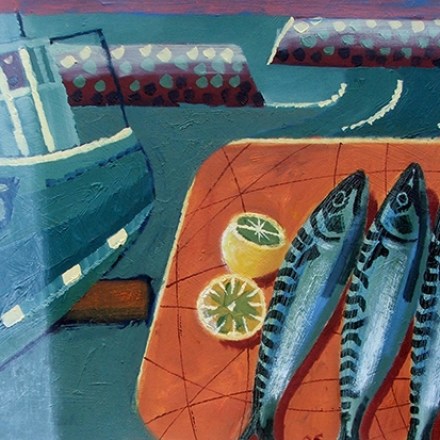Food for thought | 7 July 2016
Elisabeth Luard has a fascinating and rich subject in the relationship between food and place. Humans eat differently according to where they live. Their diets both in daily life and in feast-day magnificence are influenced by seasonal and regional availability, sumptuary laws, convention, history and even political diktat. I was in Norway last week, and











